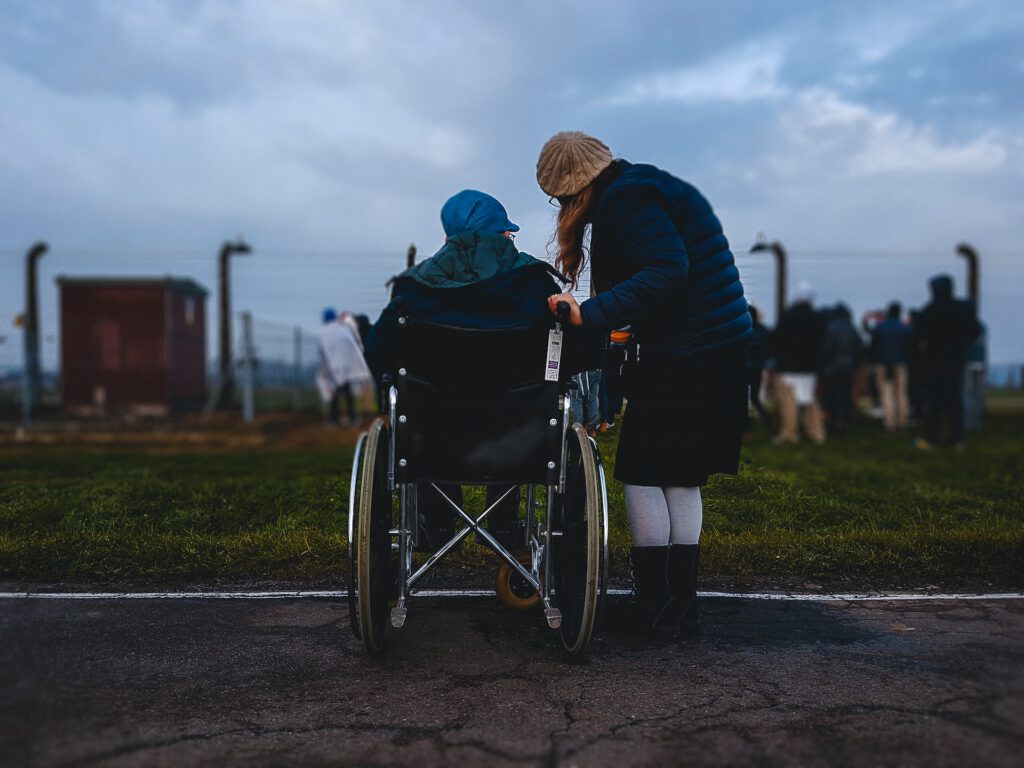Supporting the unpaid caregivers in your family

Do you have unpaid caregivers in your family, looking after older relations perhaps? How are they doing?
A recent survey has found that unpaid carers are struggling to make ends meets, with long-term lack of support compounded by the rising cost of living.
The survey by the Carer’s Trust of 2,675 of the millions of non-professional caregivers in the UK has found hardship amongst many.
- A quarter of unpaid carers have had to cut back on food, and one in seven have used a food bank.
- Almost two thirds (63%) of unpaid carers are worried about being able to afford energy bills.
- Nearly a third have had to use a credit card to pay for essential household items and more than a quarter have had to borrow money from a friend or relative.
The Trust points out that caring means extra costs: over-the-counter prescriptions, home adaptations, regular travel to medical appointments, to name just a few. At the same time carers can’t take the government advice to get back into employment, or look for more hours if they are already working – because they are carers and they need to be at home.
In fact rather than looking for more work, almost two-thirds have had to reduce their working hours or give up paid work altogether to provide care. And the survey found that 59% of unpaid carers who have had to give up paid work as a result of caring are struggling to make ends meet, compared to 37% who have not had to give up work.
It’s not just a financial cost. Unpaid caregivers are finding they no longer have the time, energy or money to keep up with friends or hobbies, or just look after their own health and wellbeing.
Unpaid carers have been hit by long-term neglect of the need for financial support for their role, compounded by the rapidly rising cost of living.
Can Carer’s Allowance help?
Carers can claim Carer’s Allowance, which is currently £69.70, but it’s a contribution to living expenses, rather than a useful replacement to paid income. That means many carers are bridging the gap between income and outgoings by digging into their savings, of they have any, which will have repercussions on their own lives now and into retirement. And more than half of the carers in the survey said they’re not even receiving this allowance.
The picture isn’t the same across the UK. The Scottish Government and the Welsh Government have provided unpaid carers with an additional payment beyond the base level of Carer’s Allowance, with the Scottish Government committing to greater reform, and the Welsh Government providing a one-off payment for 2022. This is not a level of support that is reflected in England.
What can you do to support an unpaid carer?
The Carer’s Trust has a number of recommendations that it would like the government to take up to improve the situation of the unpaid caregiver, including financial and other support. But that could take time and the will to happen.
Is there anything you can do to support the caregivers in your family?
Asked what would make the most difference to their lives, the surveyed caregivers gave their top 3 as:
- Better support for the person/people they care for
- A break or respite
- More money
While there are many reasons why care can’t be shared equally amongst family members, it could be that other family members don’t realise how much help they could give.
Do you know if the caregiver is struggling financially? They may not talk about it, but there are ways to help. Is the caregiver in your family spending their own money on food, medicines or transport, for example, when those sort of costs could be shared?
You may be working full-time, or live too far away to get involved too closely. But if you can’t contribute the daily care responsibilities, could you arrange to give the caregiver a weekend (or more) off by providing care yourself?
Sometimes what really helps is just to have someone listen without judgement. Can you provide a sympathetic ear to the caregiver, without giving into the temptation to tell them how to do their job?
Even if most of the day-to-day caring necessarily has to fall on the shoulders of one or two people, knowing that they have the support of the rest of the family can make a difference – not just financially but also to their physical and mental well-being.
More information
- Read the full report on the survey from the Carer’s Trust
- Find out how Carer’s Allowance works
- Discover if your loved one can claim Attendance Allowance
- Photo by Josh Appel on Unsplash
